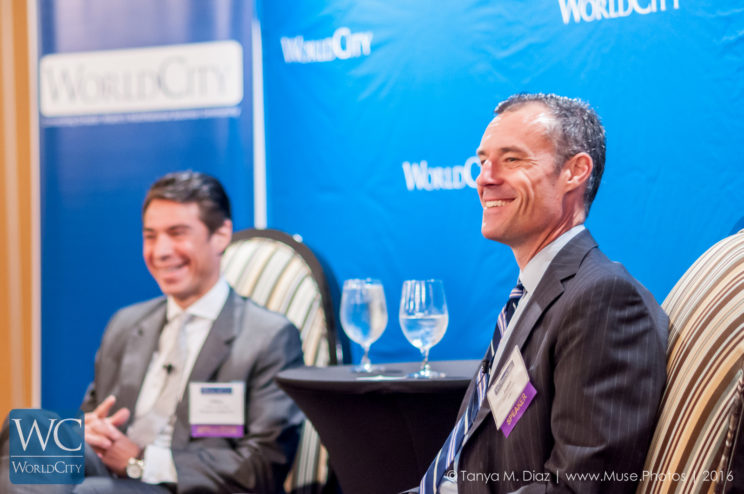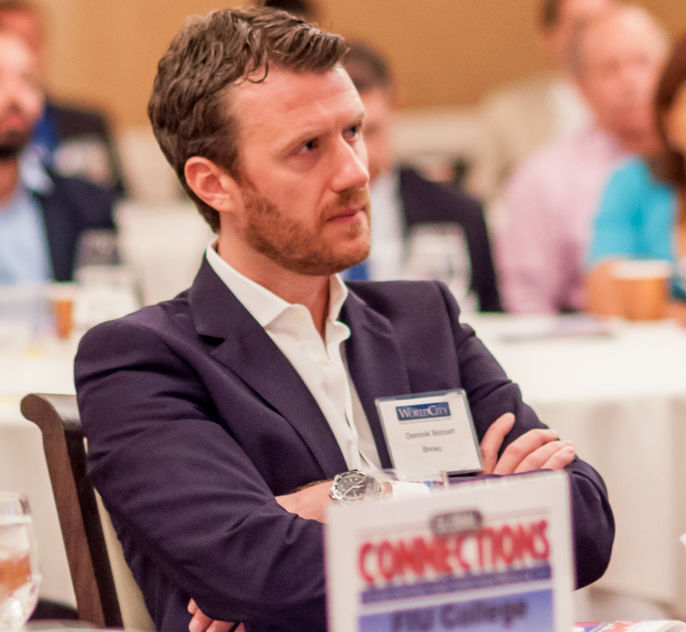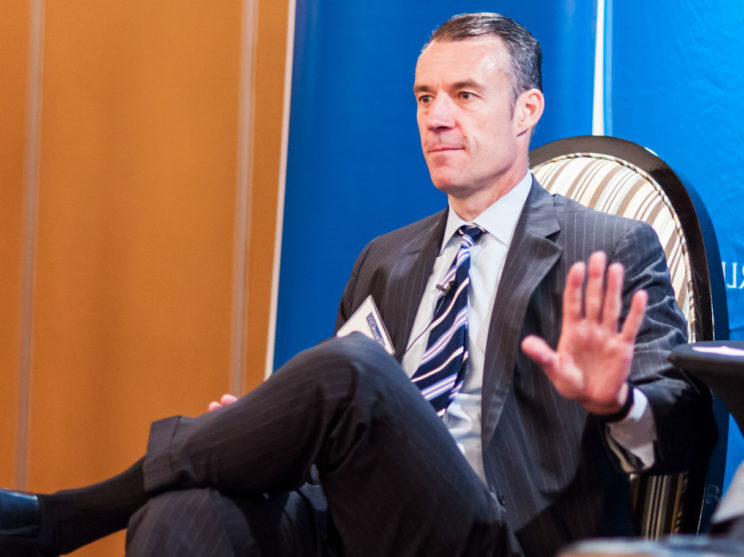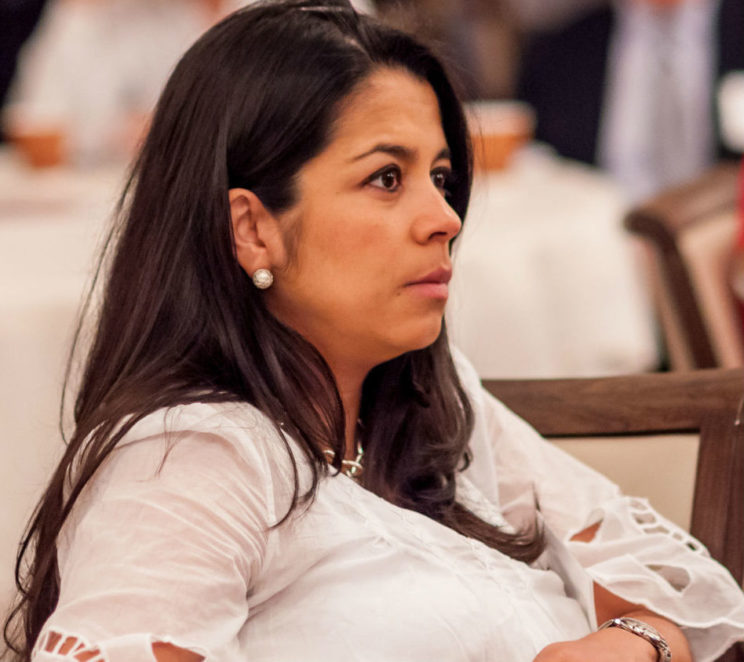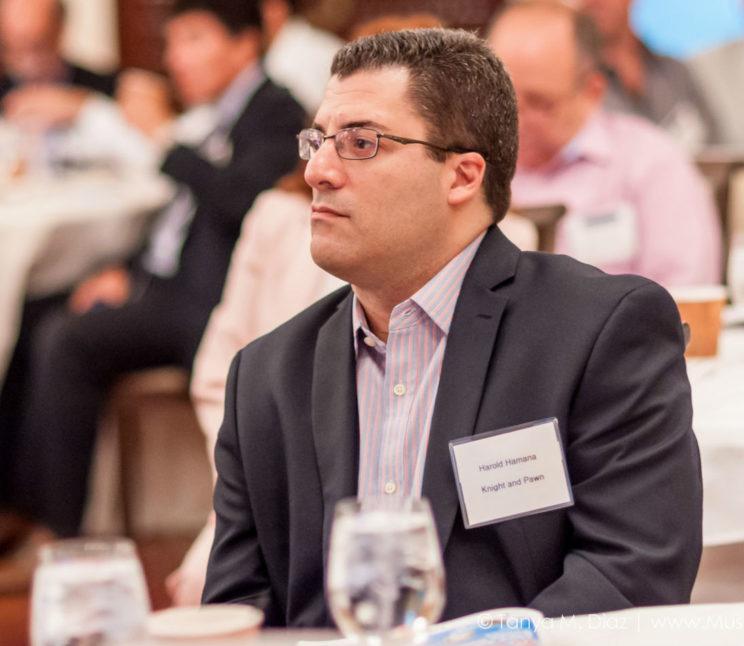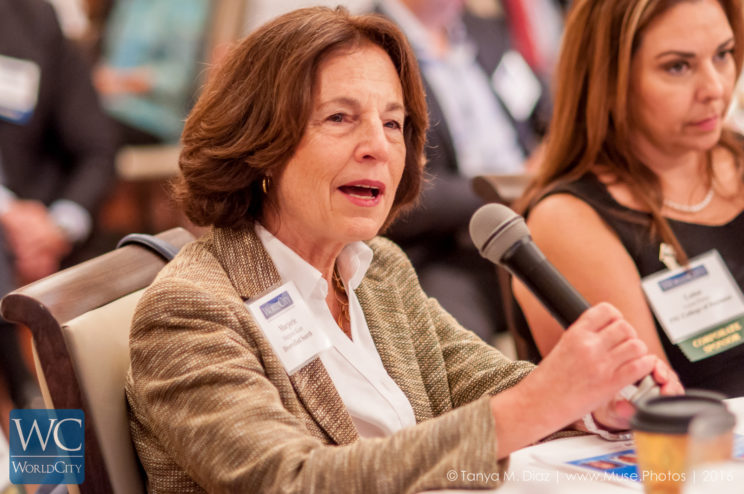Billion Dollar Bosses: Disrupt or be disrupted
It’s no small feat to manage international operations that top $1 billion in revenue yearly.
But Odilon Almeida of Western Union and James Dwane of AIG shared tips on how they do it during WorldCity’s Global Connections held May 20, 2016.
“You have to be comfortable with being uncomfortable,” said Dwane, who leads AIG’s insurance operations and business strategies in 15 countries in Latin America and the Caribbean.
Disrupt or be disrupted
Business and technology are changing at ever quickening speeds today, and only those companies that keep re-inventing themselves can thrive in the long run, the billion-dollar bosses said.
“If you want to grow, you need to disrupt. There’s not [strong economic] growth in the world anymore. We don’t have another Berlin Wall coming down” or lots of countries with people with low salaries joining the world market, said Almeida, who runs business in 98 countries and territories across the Americas and the European Union. “So in every industry now, we’re going to see losers and winners.”
Western Union aims to be its own disruptor. It’s tracking start-ups in its field, “learning from them, and if it’s not something we can copy and paste, we will buy them,” Almeida said. Managers recognize that disruption can cannibalize current revenue but have learned to accept that loss as part of the cost of survival long term, said Almeida.
Insurance too “is ripe for massive disruption,” especially because the rather staid and highly regulated has yet to figure out what to do with all its Big Data, said Dwane.
“We used to say the biggest threat to AIG as an insurance company is Google, because they know how to manage data,” said Dwane. AIG’s top managers now spend lots of time working on short-, mid-and long-range plans trying to ensure the company can compete in the Big Data age and beyond.
Hire for soft skills, not just specific knowledge
Swift change affects hiring decisions at the companies too. Both executives said they’re keen on finding staff with soft skills such as curiosity, resilience and critical thinking – rather than people with specific knowledge that would need to be updated over time anyway.
“The only way we can see trends is to be curious,” said Almeida.
Asked about the role universities can play in preparing future staff, Dwane suggested schools “bake more soft skills into the core curriculum.” He said too many graduates come to companies with information for today’s market but not enough “human-side” skills to think innovatively about what future needs.
Audience members peppered the billion-dollar bosses with questions.
Amid the stresses of big operations, how do you cope with staff who act out at meetings or otherwise falter?, asked Evelyn Alarcon, who does business development for the Chile-U.S. Chamber of Commerce.
“When I sense stress, the way I personally tend to deal with it is levity,” said Dwane. He also has brought staff to his office and said straight out, “Have a seat. You’re not acting like yourself. What’s going on?”
Test digital ideas and then, disseminate more broadly
How can you enable the digital transformation of corporate leadership for the future?, asked Ricardo Villate, group vice president for IDC Latin America.
At Western Union, the effort tends to start from a cell and spread from there. The company has a digital lab in San Francisco and its innovations later are integrated into the company, said Almeida.
Listening directly to customers and their needs helps managers to go digital and innovate, said Dwane. It’s also vital to listen to Millennials, who next decade, will make up about 65 percent of the workforce and customer base for companies, Dwane said.
Diversity in views, culture strengthens teams
How do you develop a global company and global mindset?, asked Sumit Kundu, associate dean for international programs at Florida International University’s College of Business.
Western Union already has a global mindset, featuring a CEO from Turkey, COO from Brazil and a Brazilian soon to lead business in France, to name a few examples of diversity in top management, said Almeida.
Being global requires cultural sensitivity and respect for different cultures, he said. It can get complicated when people of different cultures come together. But that’s when you need to find common ground in values, including integrity and accountability to those you work with in the company, said Almeida.
“With diversity, you have a better team,” the Western Union boss said. “it’s important to have people at the table thinking differently.”
How do you see disruption in business going forward?, asked Marjorie Kean, a managing director at Diversified Search in Miami.
As the pace of change accelerates, every individual needs to prepare themselves, the executives said. Even if you stay in the same job, requirements for your job will change over time, Almeida said.
Managing through change and reinventing yourself tends to be easier, Dwane said, “if you don’t make it about yourself but make it about those you serve.”
Global Connections is one of four event series organized by WorldCity to bring together executives in greater Miami on international business topics. The Global series is sponsored by FIU’s College of Business and audiocom productions.
The next Global Connections event is set for June 24 on “Cuba: Charting the Path Forward.”
